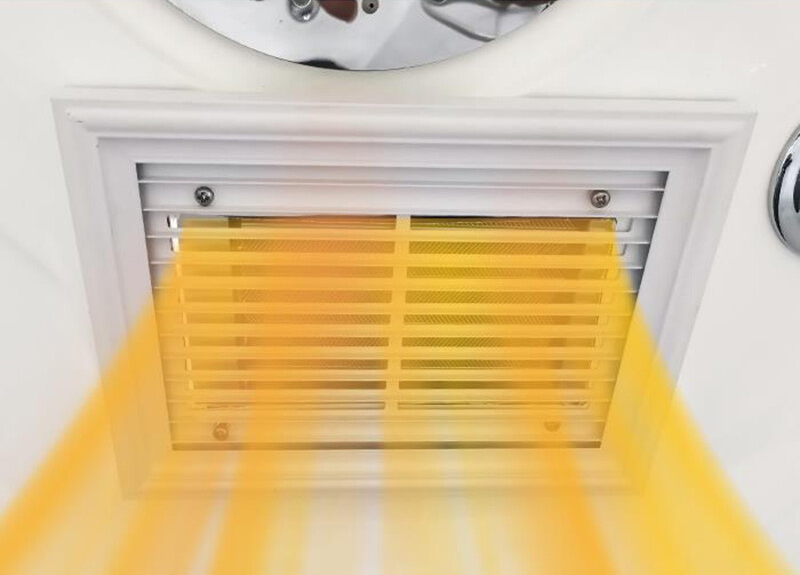
PTC Heating Element
PTC Heating Element Manufacturing Solutions
In many industries, PTC heating elements have taken product performance and durability to a new level. We are a professional PTC heating element processing and customization solution provider, committed to providing you with high-quality customized services to meet your unique needs in product design and manufacturing.

Provide Customized Services For PTC Heating Element In Different Situations




If you only have drawing and ideas for making PTC heating element, we can open the mold for you. We provide drawings, inspections and technical advice.


Demand Communication and Product Design

Deep understanding of customer needs
We communicate with you to understand the product's function, appearance and performance requirements.

Product design
According to your needs, we design a suitable solution, including structure, shape and material selection.
PTC Heating Element Materials Selection

The matrix material is barium titanate (BaTiO₃) based ceramics, which has a significant PTC effect by adjusting the Curie temperature (usually 60°C~250°C) through doping (such as Sr, Pb, Sn, etc.).

Silver electrode (Ag) Silver-palladium alloy (Ag-Pd) Nickel electrode (Ni)

By properly matching substrate, doping and process, the response speed, life and energy efficiency of PTC ceramics can be balanced.

Ceramic-based PTC materials are formed into polycrystalline semiconductor ceramics through high-temperature sintering. Potential barriers are formed at the grain boundaries. When the temperature exceeds the Curie Temperature, the resistance rises sharply. Its characteristics are adjustable Curie point, significant resistance mutation, high voltage resistance, high temperature resistance, and good stability.

Silver electrode (Ag) Good conductivity, low cost, suitable for low temperature applications (<200℃). Nickel electrode (Ni) Low cost, requires chemical plating after sintering, suitable for mass production.
Household appliances: constant temperature heating and safety protection
Typical products:
✹Electric heater/heater: PTC heating plate is used as the core heat source. After power is turned on, it quickly heats up to the set temperature (such as 180°C), and then the resistance increases and the current is automatically limited to avoid overheating risks.✹Humidifier: Heat the water temperature to 50~60°C (sterilize and avoid boiling), and the Curie temperature accurately matches the demand.
✹Electric kettle/coffee machine: auxiliary heating module to prevent dry burning (power drops sharply when the temperature exceeds 120°C).
◇ Advantages:
No external temperature control circuit is required, and the structure is simplified.No open flame, in line with household appliance safety standards (such as IEC 60335).


New energy vehicles: battery thermal management and cabin heating
Application segmentation:
✹Power battery preheating: In low temperature environment, PTC heating sheet (Tc=40~60°C) is attached to the inside of the battery pack to evenly heat to the optimal working temperature (above 0°C) to improve charging and discharging efficiency.✹In-car heating system: Instead of traditional resistance wire, honeycomb PTC module (power 3~5kW) is used to produce hot air within 3 seconds, reducing energy consumption by 20%.
✹Steering wheel/seat heating: Flexible PTC film (thickness <1mm) is embedded in the leather layer, and the temperature is stable at 35~45°C.
◇ Technical highlights:
Vibration-resistant design (ceramic matrix + metal package).12V/48V low voltage compatible, in line with vehicle electrical specifications.
Medical and health equipment: safe constant temperature physiotherapy
Scenario examples:
✹Physiotherapy device: PTC heating sheet (Tc=50~70°C) fits the affected part of the human body, continuously releases stable heat (such as lumbar spine and knee hot compress), and the temperature fluctuation is <±2°C.✹Respirator humidifier: heat the water in the humidification tank to 37°C (close to body temperature) to avoid condensation.
✹Smart wear: Graphene composite PTC heating film is used to heat knee pads and warm uterus belts, driven by low voltage (5V USB), and automatically cuts off power when overheated.
◇ Core requirements:
FDA-certified silicone packaging).Leakage current <0.1mA (to ensure human contact safety).


Industrial equipment: antifreeze and process heating
Application examples:
✹Pipeline heating: PTC heating belt is wrapped around petroleum/chemical pipelines to maintain medium temperature (Tc=80~120℃) and prevent low-temperature solidification (such as crude oil, asphalt).✹3D printing hot bed: Large-area PTC aluminum substrate (±1℃ uniformity) ensures the molding stability of printing materials (such as ABS).
✹Agricultural greenhouse: PTC heating wire buried in the soil (Tc=25~30℃) to prevent seedlings from frost.
◇ Industrial-grade design:
Corrosion-resistant electrodes (such as nickel-plated or 316L stainless steel housing).IP67 protection level (suitable for humid and dusty environments).
